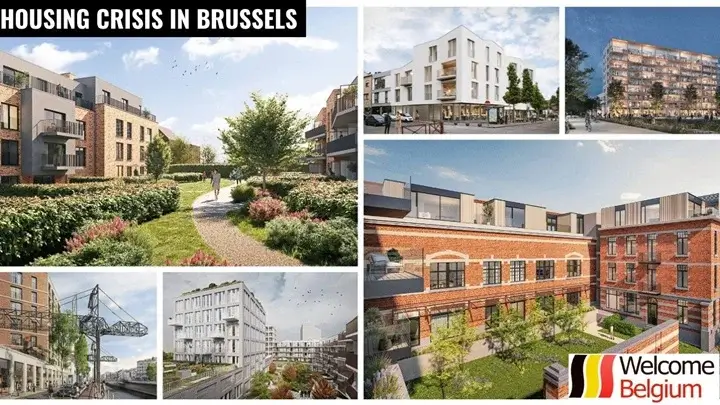In Brussels, the share of residents who own their own housing remains steadily around 20%. This is one of the lowest rates in Europe among capital regions. Purchasing real estate is becoming increasingly unaffordable due to high prices and limited supply. The market continues to shift towards renting, and many residents see it as the only viable living option.
Main Reasons for Reduced Housing Affordability
The structure of the capital’s real estate market was formed under conditions of dense development, which led to the predominance of apartment buildings. The cost of properties is significantly higher than in neighboring regions. Families, after purchasing a small first home, often move to the suburbs, freeing up the capital for renters. Demand remains high, while supply is insufficient.
Factors Influencing the Low Level of Ownership:
- Dominance of apartments, more often used as rental properties.
- Housing prices noticeably exceeding national averages.
- Families moving to suburbs after purchasing their first property.
- Uneven income levels between capital districts.
These factors create sustained demand for renting while simultaneously making ownership difficult.
Social Consequences of the Tense Market Situation
In the capital region, the number of overcrowded apartments is growing. Multiple generations live in one home, which reduces the quality of daily life. Queues for social housing are increasing and already include tens of thousands of families. The rental market is overloaded, and contract costs continue to rise.
Consequences for Residents:
- Growth in apartment overcrowding.
- Increase in queues for social housing.
- Limited opportunities to accumulate capital through real estate.
- Strengthening differences between prosperous and vulnerable neighborhoods.
These processes complicate the situation for families hoping to settle in the capital for the long term.
Gap Between Belgium’s Regions
Comparison of the capital region with Flanders and Wallonia shows a persistent imbalance. In the other two regions, the share of owners is significantly higher. Differences are formed due to a more accessible market, predominance of private houses, and a more stable development structure.
| Category | Brussels | Flanders | Wallonia |
| Overall Share of Housing Owners | ~21 % | ~45 % | ~38 % |
| Apartment Ownership | ~32 % | ~34 % | ~22 % |
| House Ownership | ~77 % | ~85 % | ~78 % |
The data reflect the persistent nature of the differences and confirm that Brussels remains the most inaccessible regional housing market.
Government Actions and Possible Solutions
Regional and federal authorities continue to develop measures aimed at expanding affordable housing. New projects are under construction, regulations are being adjusted, and forms of family support are being discussed. The growth rates of the housing stock remain insufficient to cover demand, and pressure on the market persists.
Proposed Measures:
- Construction of more affordable and social housing.
- Support for families through preferential lending programs.
- Development of larger apartments suitable for families.
- Strengthening control over the rental market.
These directions are considered the basis for improving the situation in the long term.
Official Resources of the Government of Belgium
Information on the housing market, statistics, and regulatory documents are available on government portals:
- Government of Belgium — https://www.belgium.be
- Statbel (Belgium Statistics) — https://statbel.fgov.be
- SPF Finances — https://finances.belgium.be
- Brussels-Capital Region — https://be.brussels
The housing situation in Brussels creates a persistent gap between residents’ real opportunities and market price dynamics. The low share of owners, growth in renting, apartment overcrowding, and slow construction rates intensify social pressure. The capital region remains one of the most challenging for purchasing housing in Europe, and without large-scale systemic solutions, the gap between demand and affordability will only widen. Ongoing reforms and government programs may change the situation, but their effect will only become noticeable with long-term and consistent implementation.




